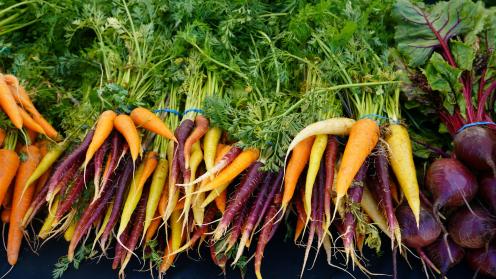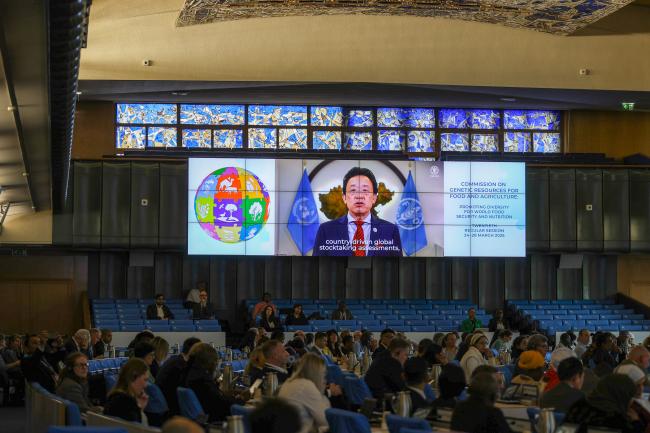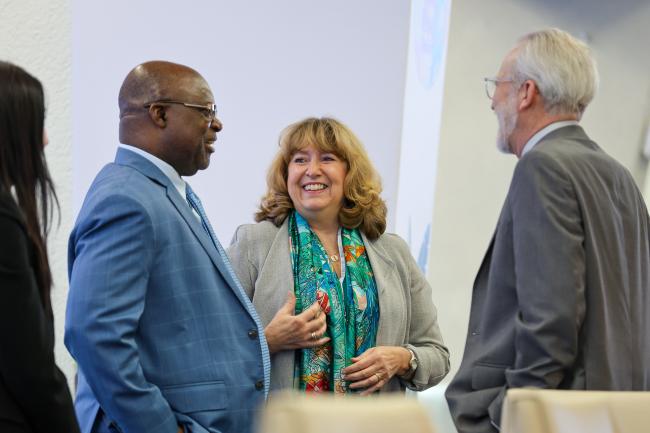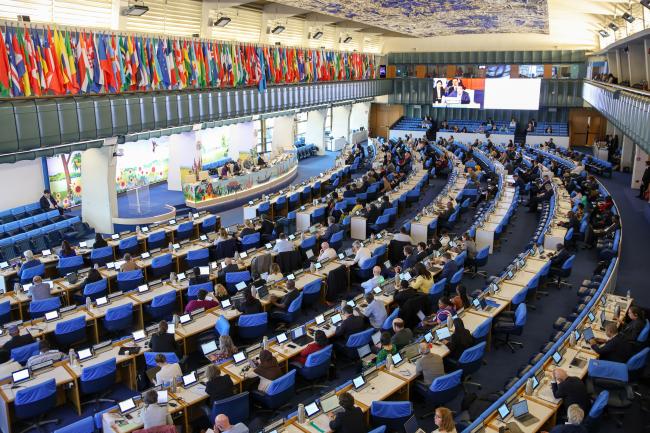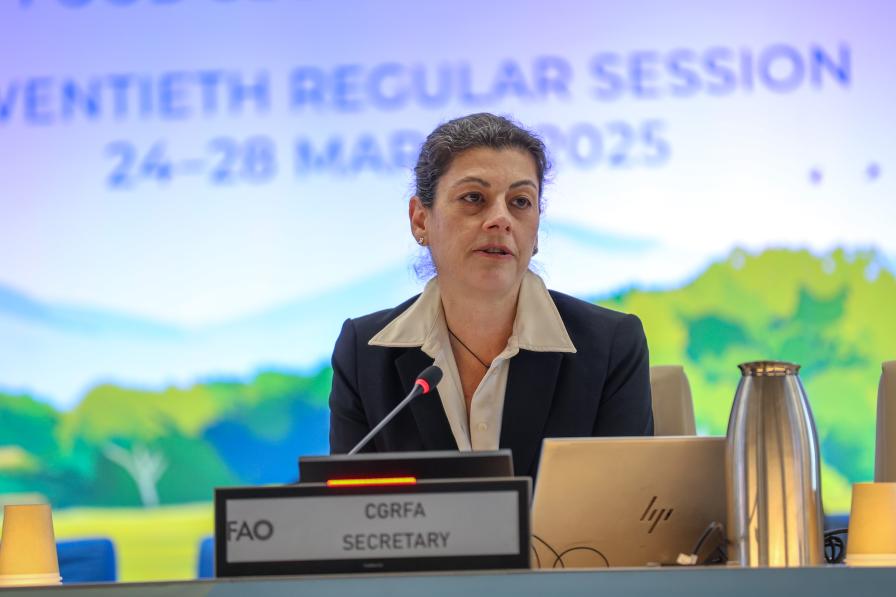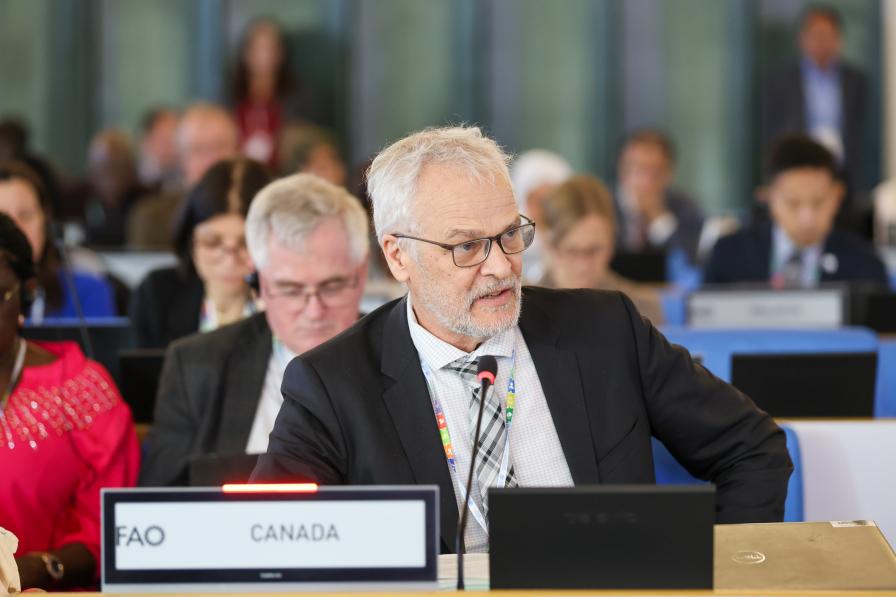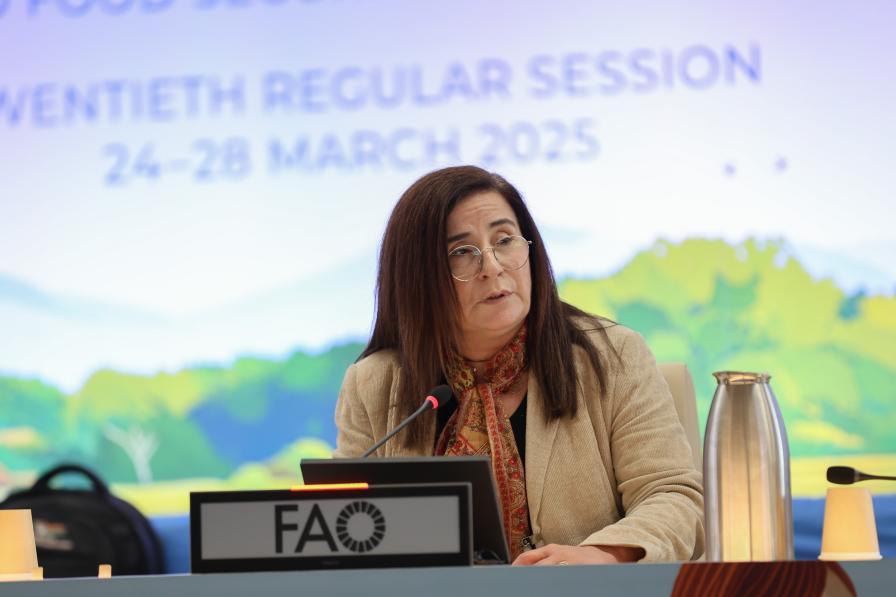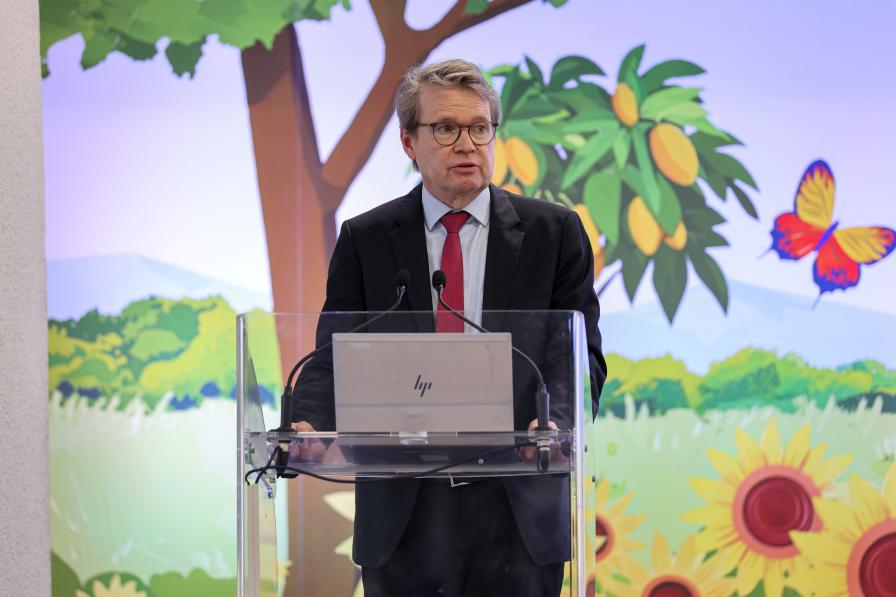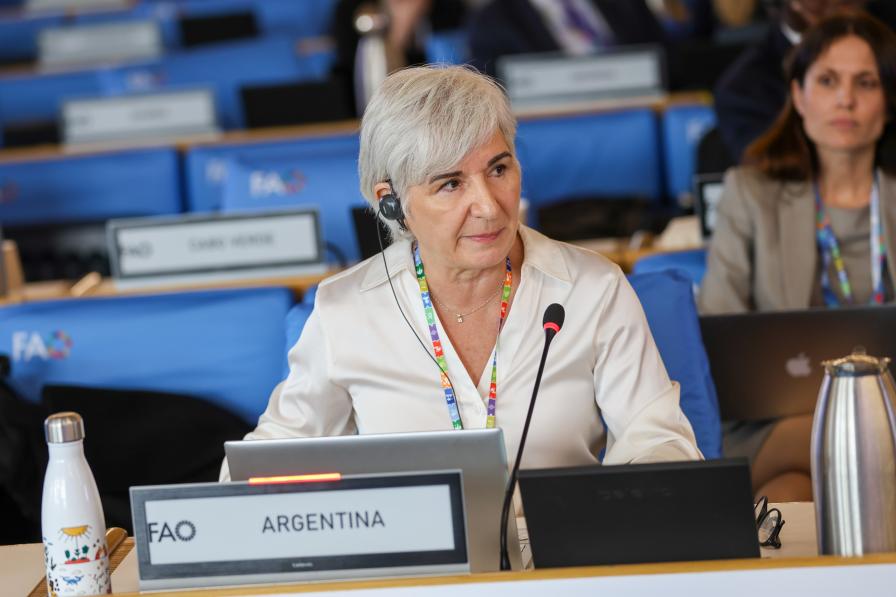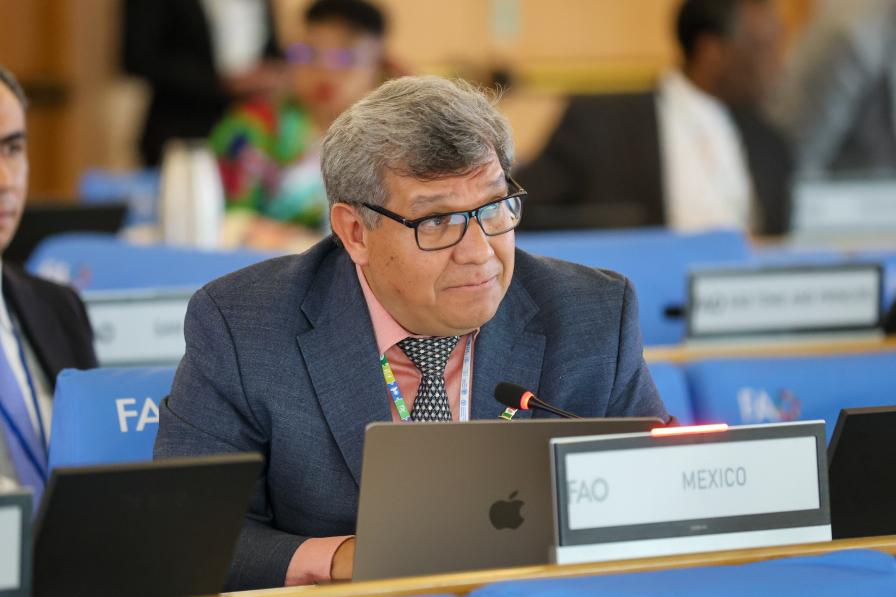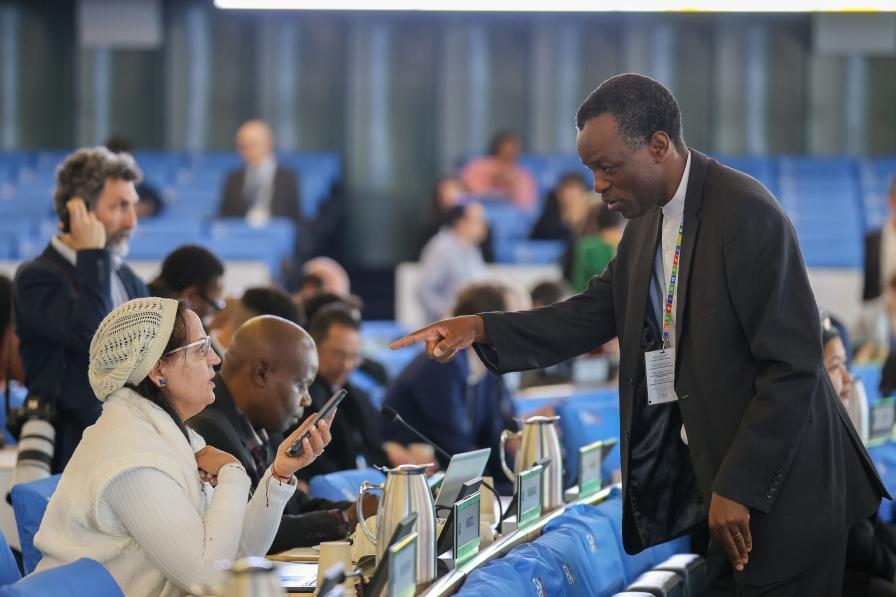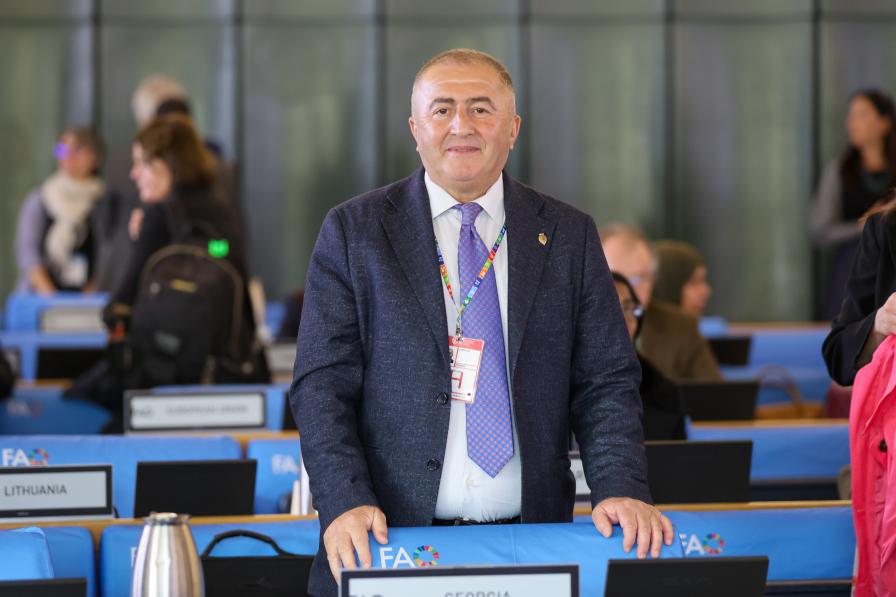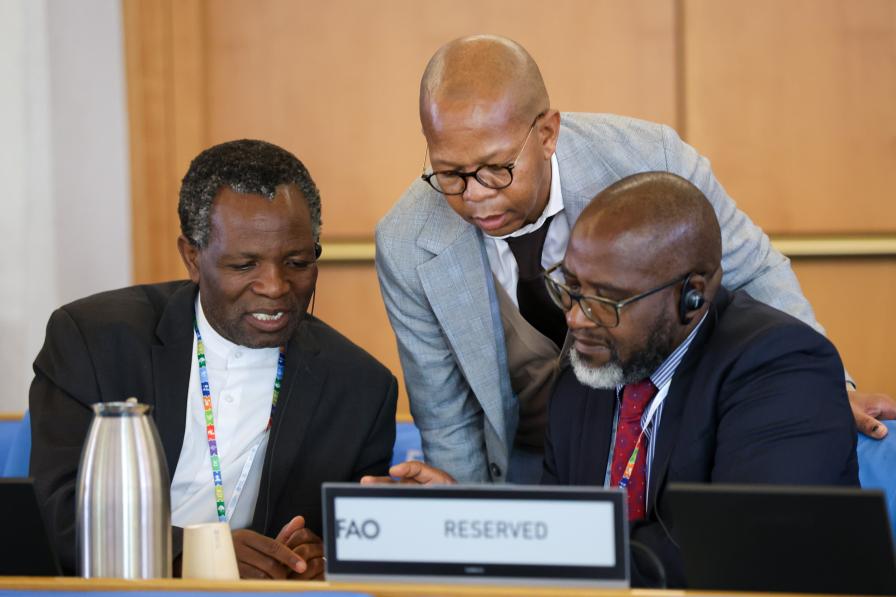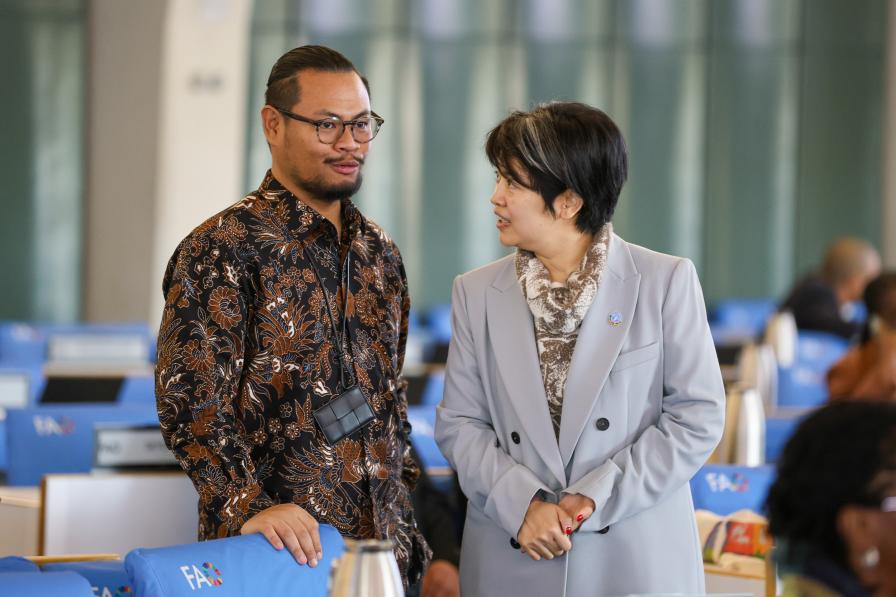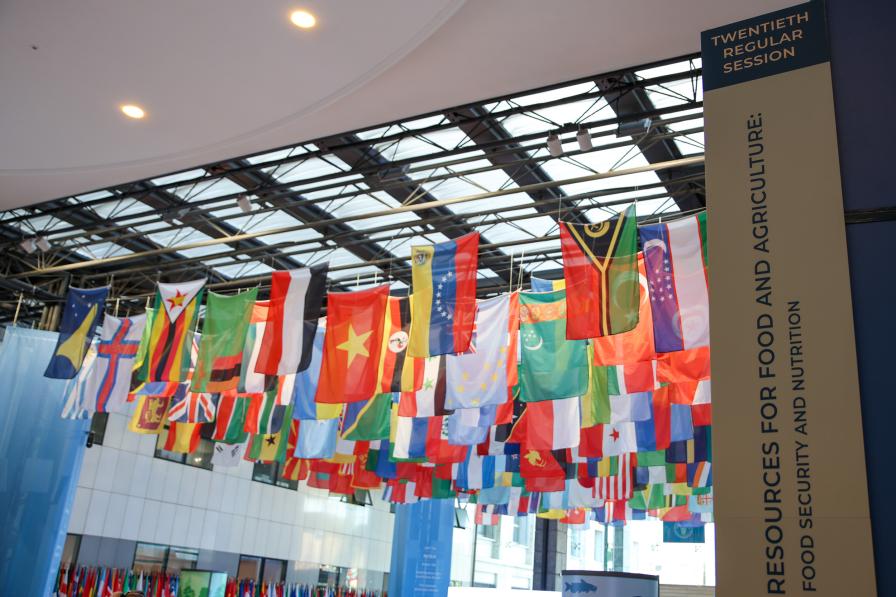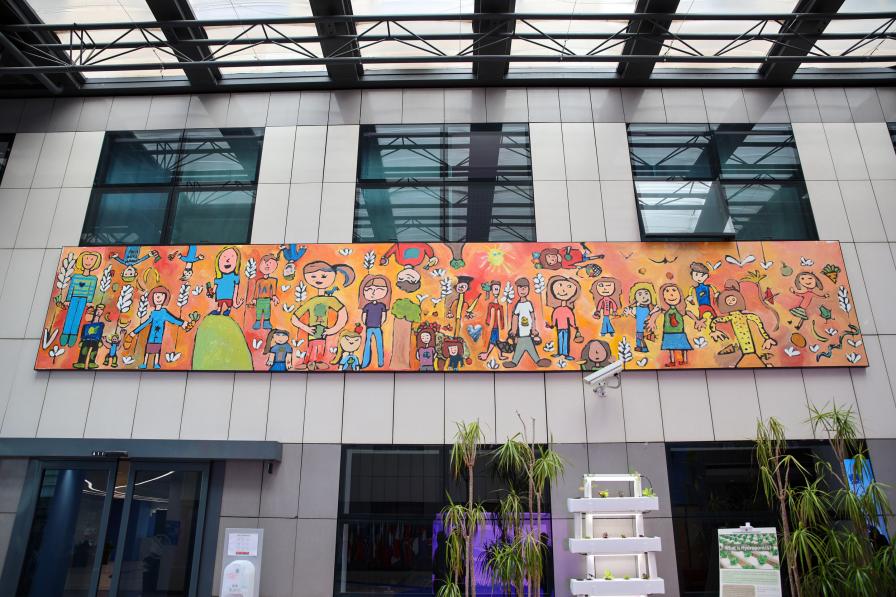“Promoting diversity for food security and nutrition should be understood in its broadest sense: embracing different priorities, needs, opportunities, and challenges, while also spurring collaboration and ensuring that benefits are equally shared.”
With these opening reflections, the Chair of the 20th session of the Commission on Genetic Resources for Food and Agriculture (CGRFA), Benoît Girard (Canada), set the tone for the week’s discussions that will highlight the many intersections between agrifood systems and various multilateral environmental processes that touch on the conservation of genetic resources.
Welcoming delegates via video message, Qu Dongyu, Director-General, Food and Agriculture Organization of the UN (FAO), said the launches of two State of the World (SOW) stocktaking reports covering plant and forest genetic resources represent milestones in the Commission’s work.
Want to dig deeper into the day's talks? Read the full Earth Negotiations Bulletin daily report.
Astrid Schomaker, Executive Secretary, Convention on Biological Diversity (CBD), remarked that the successful conclusion of the resumed 16th session of the meeting of the Conference of the Parties (COP 16) to the CBD “in this same room” shows that environmental multilateralism “can work and must work.” She called for translating these achievements into action by placing the transformation of food and agriculture at the center of National Biodiversity Strategies and Action Plans.
Kent Nnadozie, Secretary, International Treaty on Plant Genetic Resources for Food and Agriculture (ITPGRFA), stressed that SOW reports are not just analyses, but calls to action that should lead to enhanced cooperation, “to ensure that genetic resources are available to those who need them the most.”
The newly appointed Secretary of the CGRFA, Manoela Pessoa de Miranda, encouraged delegates to work towards the Commission’s vision of ensuring that food security and nutrition are a common goods, not privileges.
In their opening statements, representatives of six of the seven geographical regions welcomed the new SOW reports, while expressing concern about the low response rates to surveys circulated by the Secretariat to inform its work. Others cautioned against expanding the Commission’s work to new and emerging issues beyond its mandate.
The rest of the day was taken up in reviews of CGRFA reports on:
- the role of genetic resources for food and agriculture in mitigation of and adaptation to climate change;
- access and benefit sharing (ABS), including the implementation of country measures; and
- digital sequence information (DSI) on genetic resources.
Members debated at length the Commission’s work in relation to climate change. Among other issues, they lamented the slow uptake of the Voluntary Guidelines to Support the Integration of Genetic Diversity into National Climate Change Adaptation Planning, and members’ low response rate to a survey about that uptake. Many expressed hope that a dedicated workshop – currently scheduled for the next intersessional period – could galvanize action.
Delegates discussed, but could not agree on, finalizing an extensive draft report on the impact of ABS country measures on genetic resources for food and agriculture. Some countries expressed concern over methodological challenges and biases distorting the report’s accuracy, whereas others preferred publishing the results regardless.
Though delegates unanimously welcomed the recently adopted CBD Decision 16/2 operationalizing a multilateral mechanism on benefit-sharing from the use of DSI and the associated Cali Fund, they disagreed on how the Commission should react to this development. Discussions revolved around the need for further capacity building with key stakeholders such as Indigenous Peoples and local communities, and a potential workshop to be co-convened with the CBD and the ITPGRFA Secretariats in the next intersessional period.
In the late afternoon, delegates also embarked on an initial exchange of views on recommendations for implementation of the Framework for Action on Biodiversity for Food and Agriculture. Discussions on the draft voluntary guidelines for the Framework and draft questionnaire on implementation highlighted issues of funding support, avoiding duplication of work with other processes, and coherent implementation of relevant frameworks.
The first day also saw the launch of the Third Report on the State of the World’s Plant Genetic Resources for Food and Agriculture, as well as diverse side events on the margins of the meeting.
To receive free coverage of global environmental events delivered to your inbox, subscribe to the ENB Update newsletter.
All ENB photos are free to use with attribution. For the 20th Session of the UN FAO Commission on Genetic Resources for Food and Agriculture, please use: Photo by IISD/ENB | Mike Muzurakis
Plenary
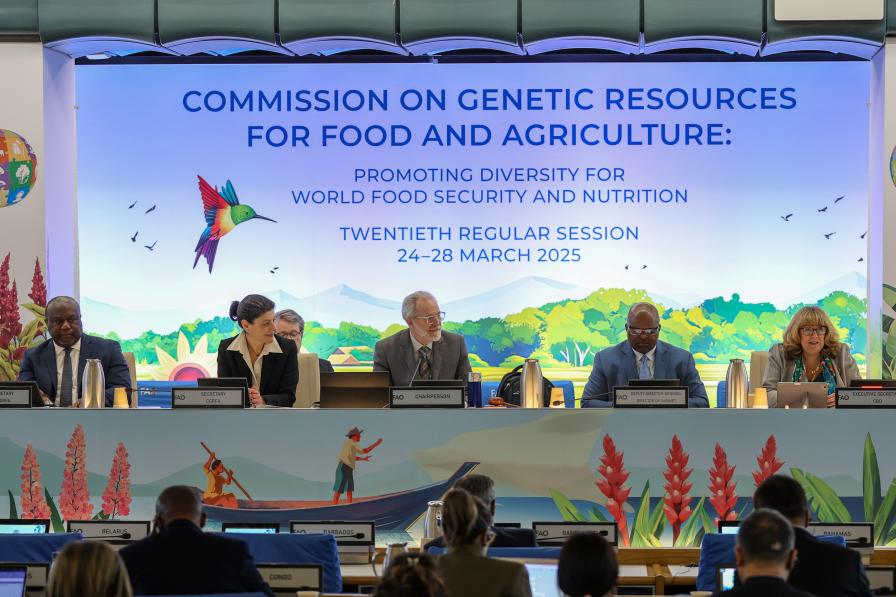
From L-R: ITPGRFA Secretary Kent Nnadozie; CGRFA Secretary Manoela Pessoa de Miranda; CGRFA 20 Chair Benoît Girard, Canada; UN FAO Deputy Director-General Godfrey Magwenzi; and CBD Executive Secretary Astrid Schomaker
